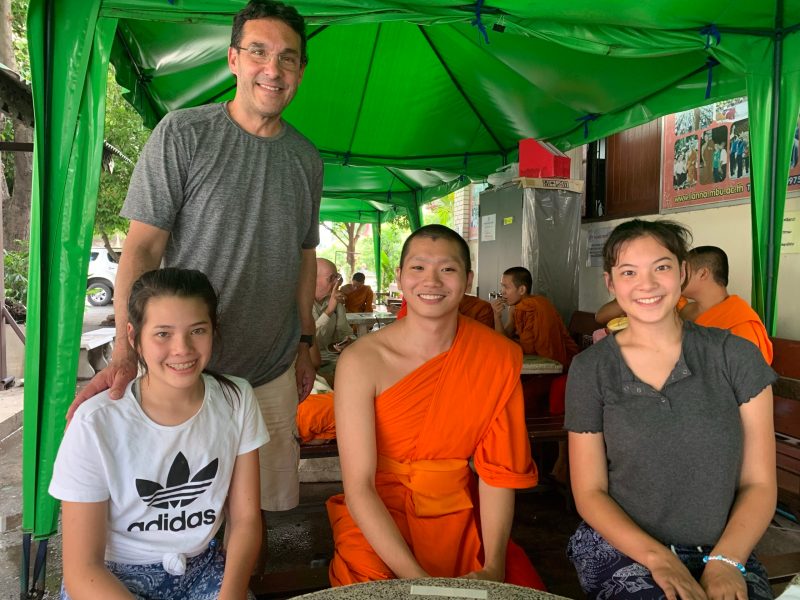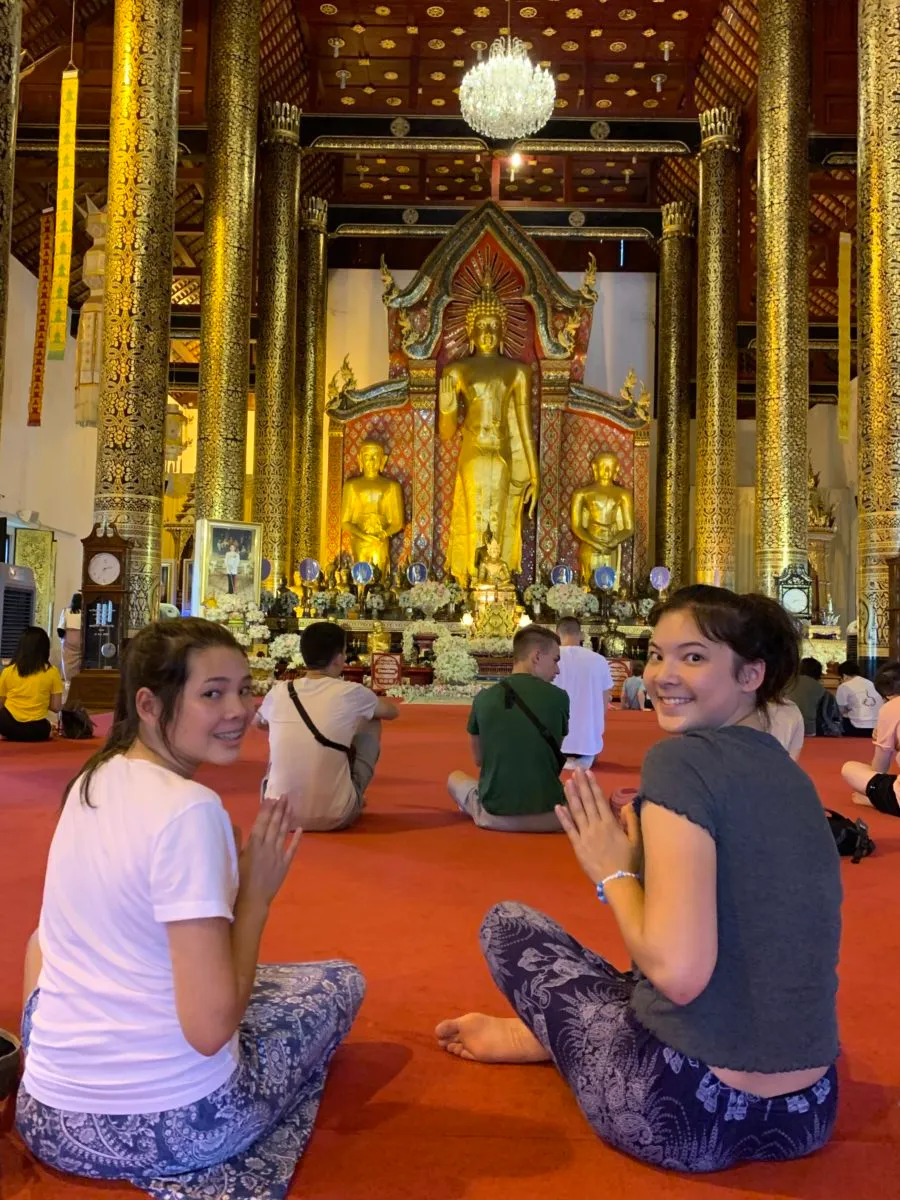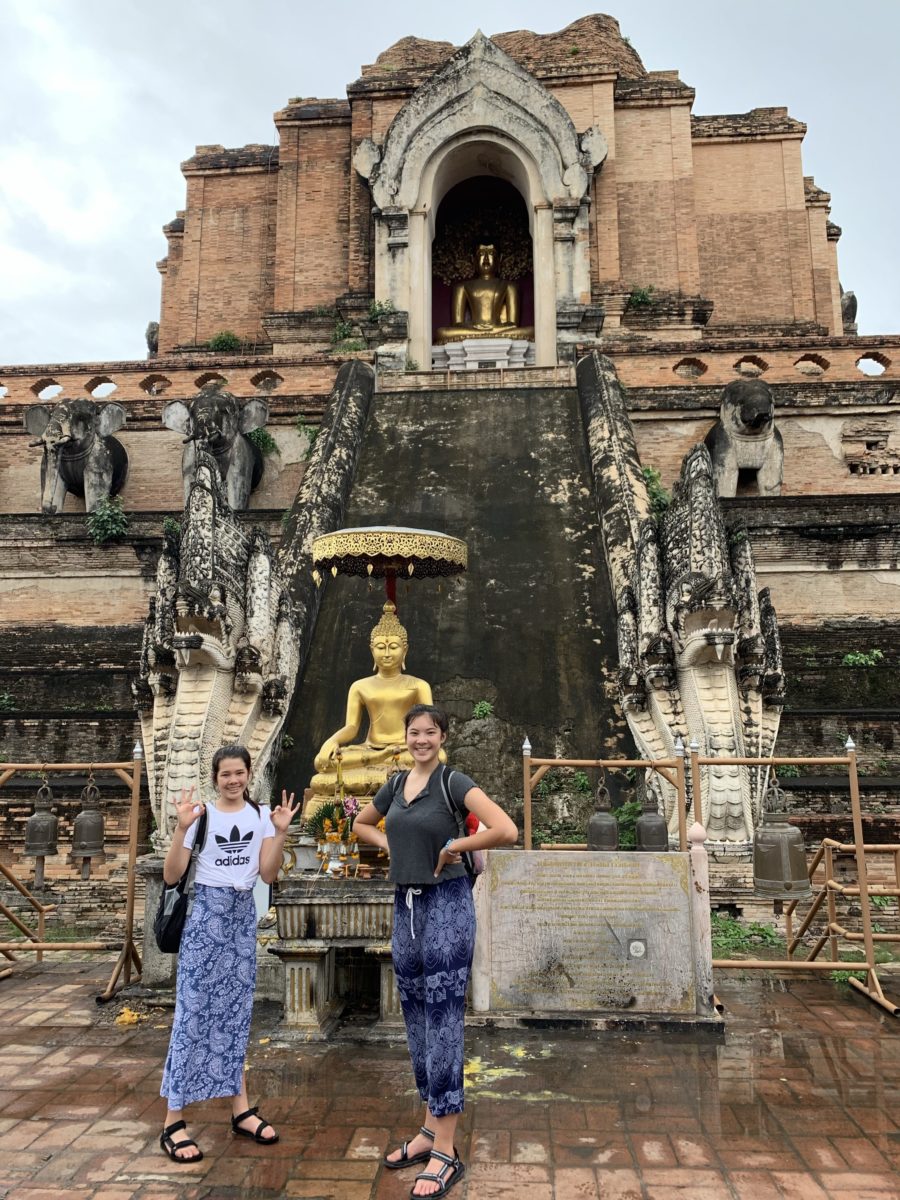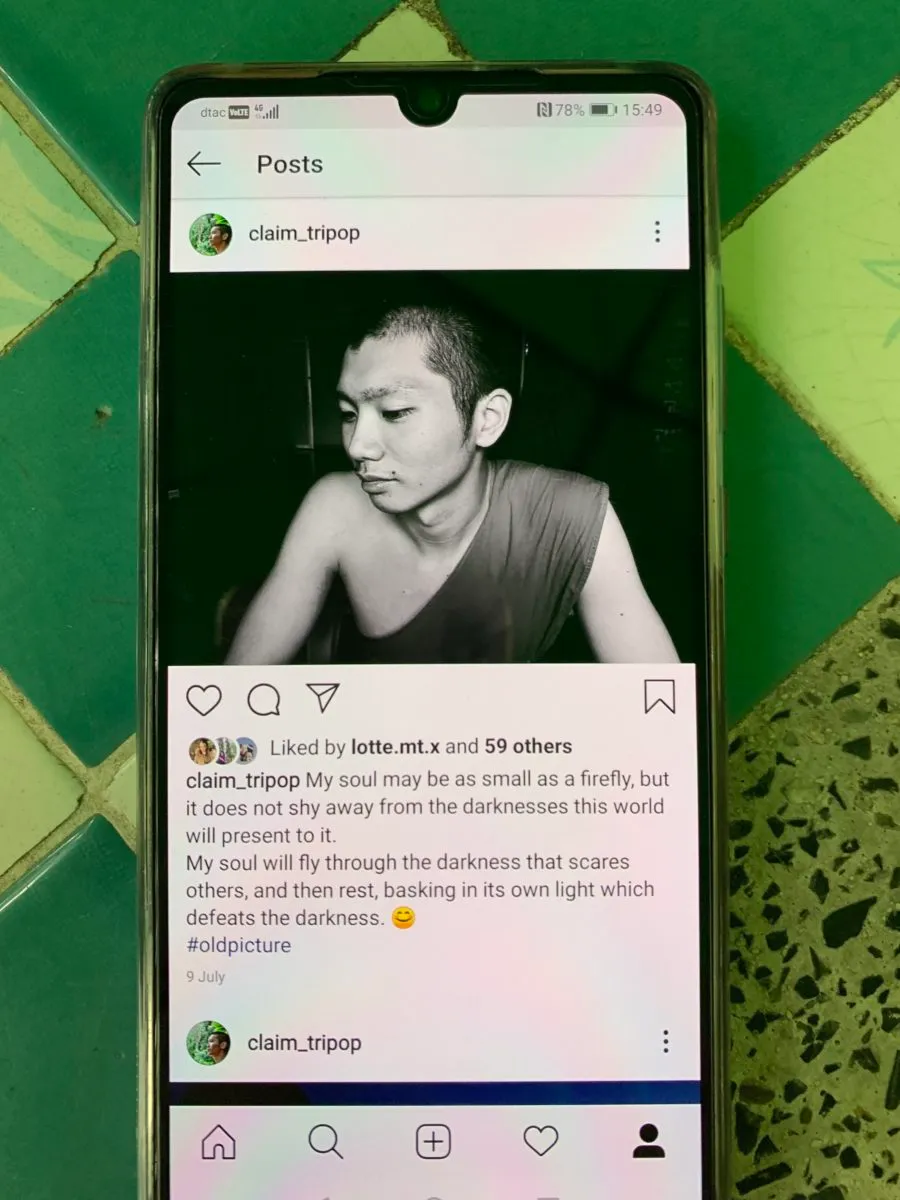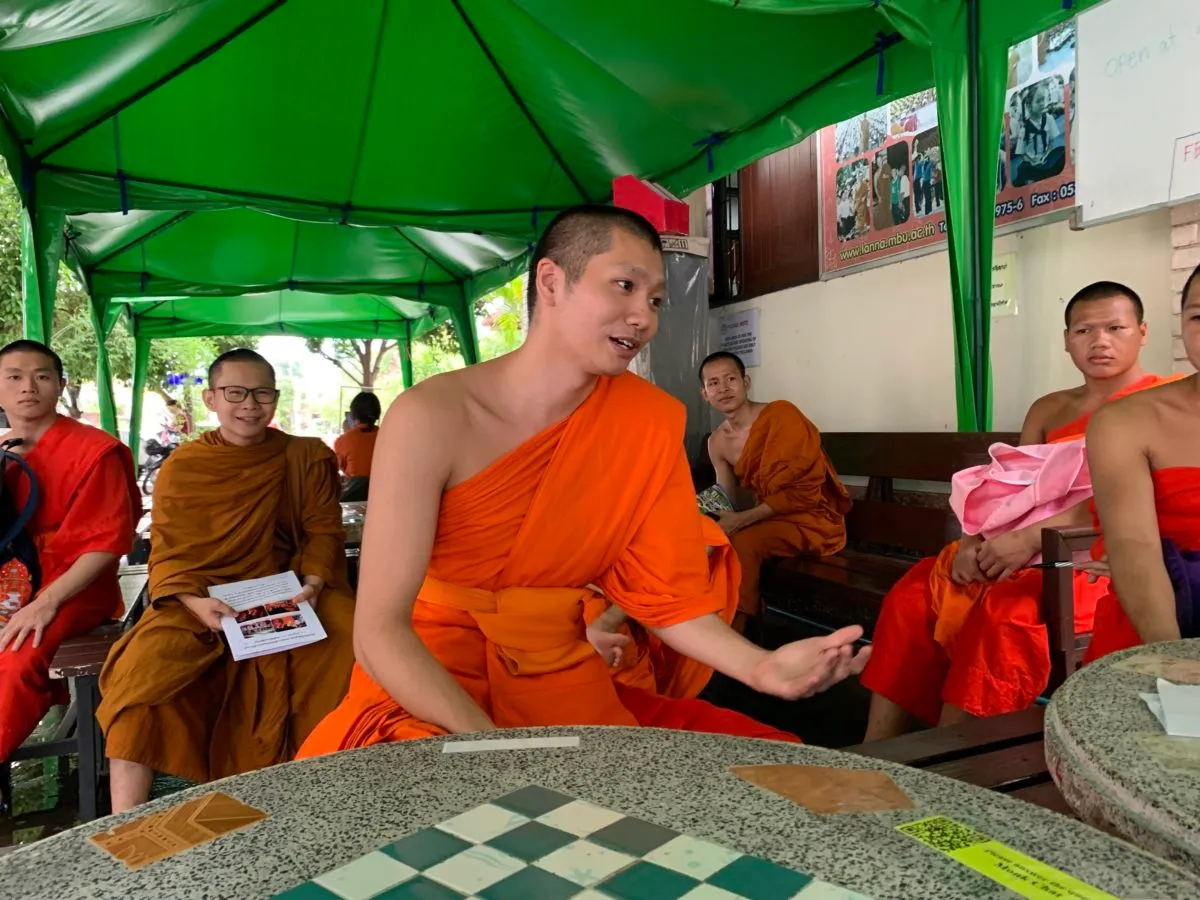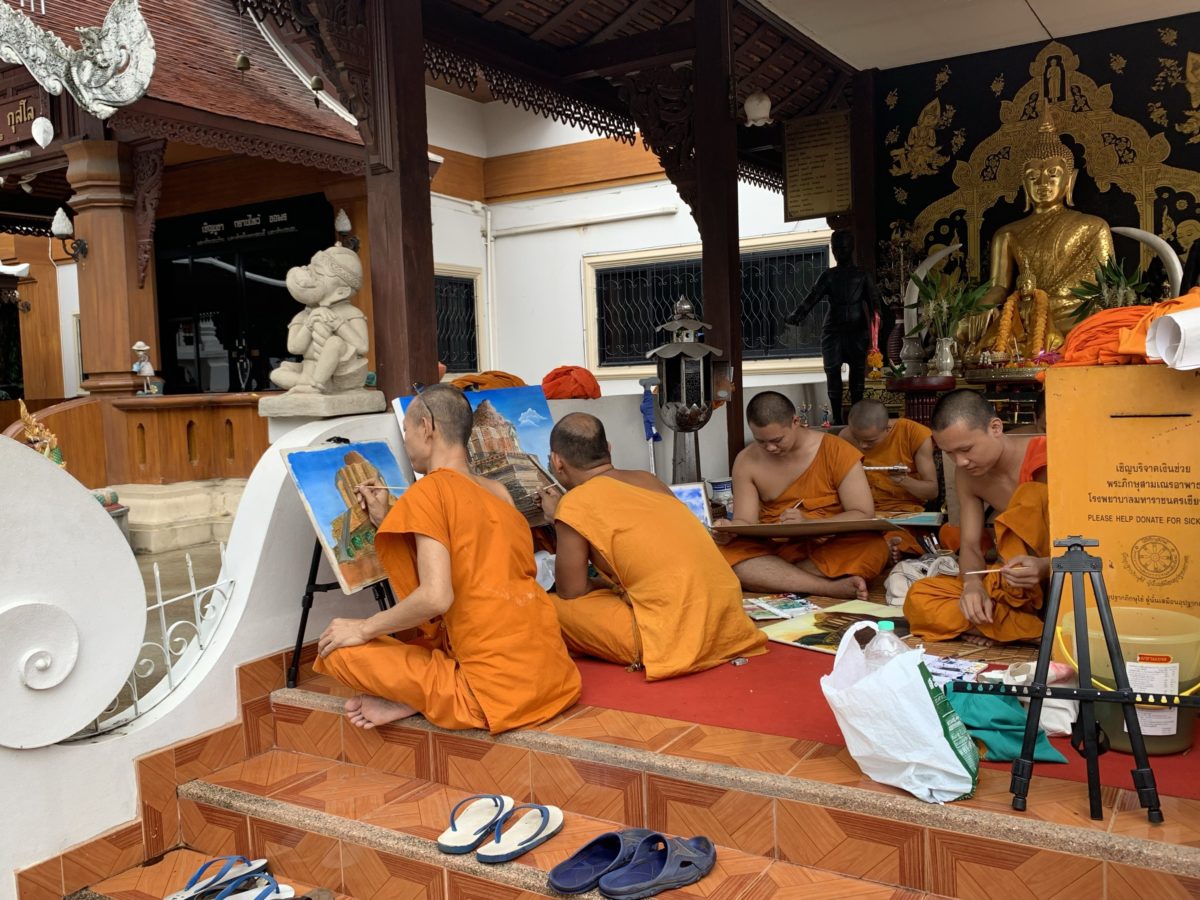In early August of last year, I had a face-to-face chat with a monk that had an unforgettable impact on my worldview.
Now, you may be wondering, “How did this happen?”
“Where did this happen?”
And most definitely, “Why did this happen?”
So maybe I got a little ahead of myself (oops!). Let’s rewind just a bit.
Last summer my family and I traveled to Thailand. We traversed the country and stayed in four diverse locations: Chiang Mai, Koh Sok National Park, Koh Samui and Bangkok.
In two weeks, we were able to glamp in tents floating on a lake, explore a cave with six-inch spiders, tour Bangkok at night on a Tuk Tuk, get traditional Thai massages, learn how to carve fruit, get in touch with our spirituality at several temples and even hike side-by-side with elephants.
Though the lavish foot rubs and enormous elephants were great memories, one of my favorite experiences on the trip was a conversation I had with a monk.
We were wandering through the elaborate golden halls of the Wat Chedi Luang Temple when we came across the Monk Chat, a program available at temples throughout Chiang Mai in which training monks in their teens and early 20s are given opportunities to talk with tourists to improve their English skills.
Here is where we met a monk named Claim.
Some monks have a cheat sheet with questions to ask tourists, but Claim had a strong command of English and was able to fluently converse about any topic. We discussed love, reincarnation, philosophy and much more. Some monks talk to tourists for only a few minutes, but we enjoyed a conversation over two hours long.
Claim became a monk at age 12, and was 23 at the time we met him. We discovered that Claim enjoys reading books, traveling, writing poetry on Instagram and conversing with tourists. One of his aspirations was to see the ocean for the first time.
Now that you know the backstory, here are a few important lessons I learned from a monk in Thailand:
Be at peace with your choices
According to Claim, in Thailand two things define a man’s entrance into adulthood: becoming a monk or a soldier. Most men in Thailand become a monk for a period of time (usually three months) before age 20 to receive good karma and merit. Since Claim was already a monk, he was not required to become a soldier — but he did not want to take advantage of his privileged status as a monk.
Signing up to be a soldier is the luck of the draw. Men show up at a designated location and draw a card out of a box. If you draw a black card, you don’t have to serve in the military, but if you draw a red card, you have to serve for two years. Alternatively, you can also decide to voluntarily serve for six months.
When Claim entered the building, he recalled that everyone began to chant “Red card! Red card!” because they wanted to see a monk serve in the army. Claim drew a black card, but he would have been at peace with either outcome.
From this story I learned that I can apply this mindset to my everyday life. For example, when applying to colleges or jobs, I can prepare myself mentally for not getting my first choice. If I anticipate I may not get what I hope for, then either way I can be at peace with the outcome.
Let go of your vanity
When asked what was the most difficult thing about becoming a monk, Claim said that he initially struggled with having his eyebrows shaved. In their pursuit of higher wisdom and spirituality, all monks are required to shave their hair and eyebrows to let go of any attachment to vanity.
This concept can be applied in many instances, especially among teenagers. For example, is the amount of time spent putting on makeup taking away from time with friends and family?
Today, we all know that wearing masks could prevent us from exposing others to COVID-19, yet social media is filled with teens not wearing masks for Instagram photo ops. I learned to sacrifice my Instagram feed to protect others from the virus. This small act of vanity can go a long way during a global pandemic.
Avoid hate even if you are mistreated
When asked if he ever felt angry, Claim shared a story about how he had loaned his notebook to a fellow monk before a very important test. The night before the test, his friend forgot to return his notebook, so Claim was unable to prepare.
Claim said that he had never been so furious and experienced uncharacteristically aggressive feelings. Despite his deep anger, though, he decided to not focus on how he was mistreated and instead made a personal vow that he would exhibit equanimity to ensure others weren’t treated the way he was.
In this time of a global pandemic, social unrest and a declining economy, there are many opportunities to harbor bitter and hateful feelings. No matter what challenges we each are experiencing, I learned from Claim that the world will be a better place if we channel our frustration into productive energy.
As Claim said, “The only thing that could be bad is to take [life] too seriously.”
Contact Kiana George at 803270 ‘at’ seq.org.
